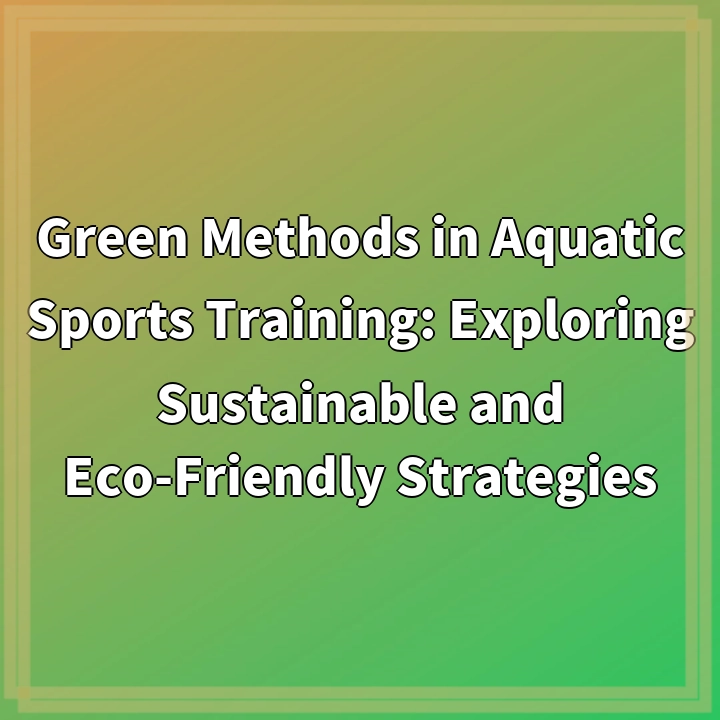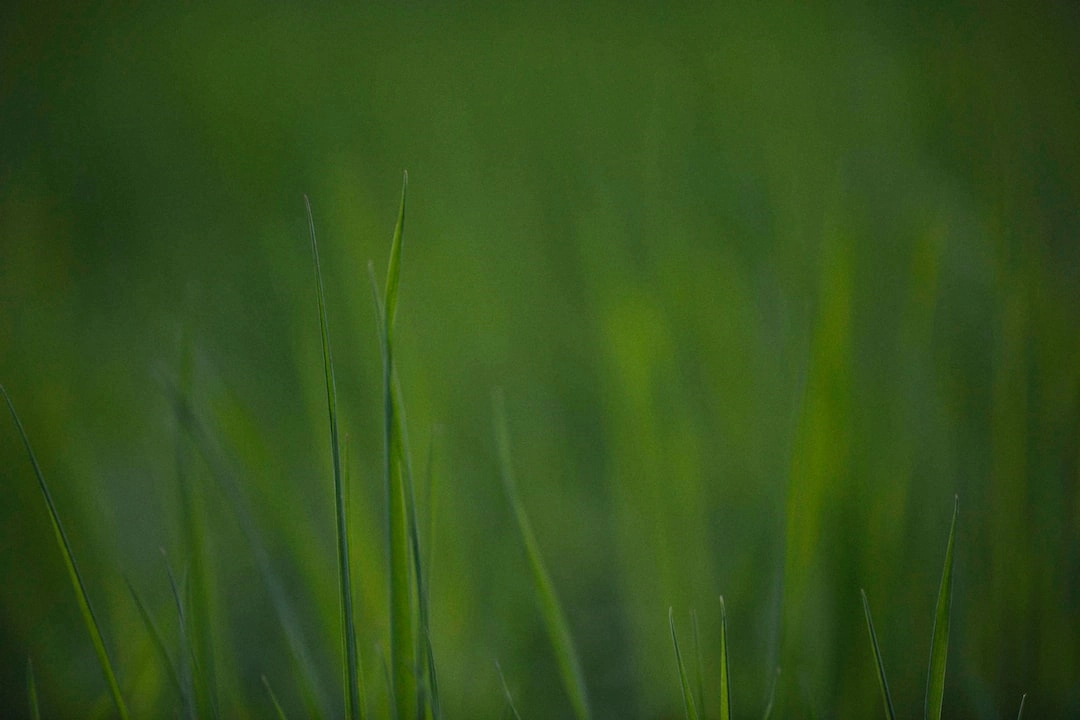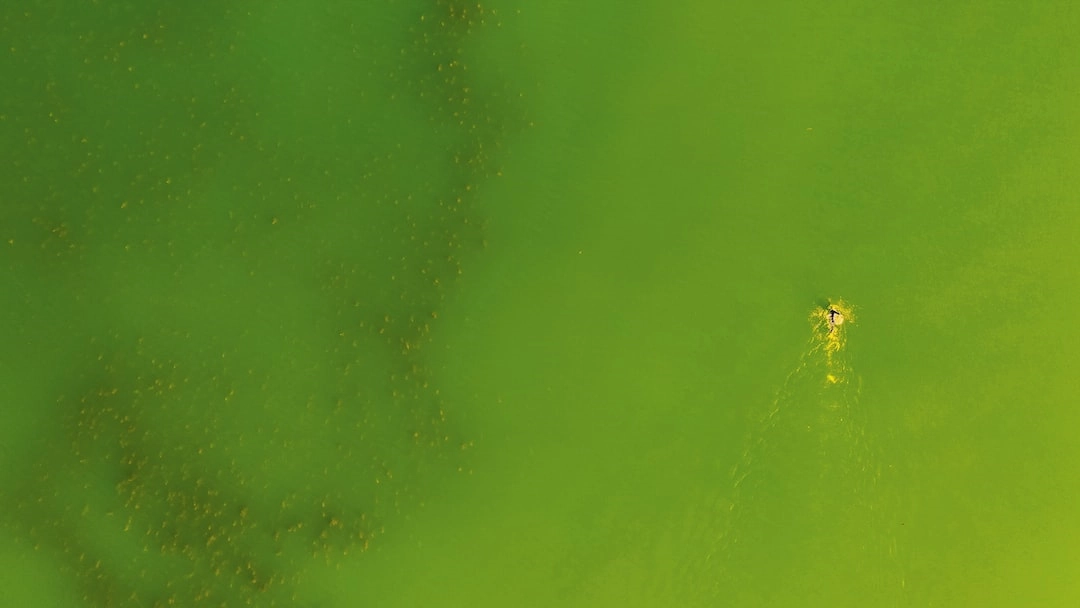
What it is:
Green methods in aquatic sports training refer to the implementation of sustainable and environmentally-friendly strategies in the training and coaching of athletes in water-based sports. These methods aim to minimize the negative impacts of sports training on the environment by adopting practices that are both efficient and eco-conscious.
Real-World Problems:
While aquatic sports training can offer numerous benefits to athletes and enthusiasts, it also comes with its share of environmental challenges. Some of the real-world problems associated with traditional training methods include:
Pollution and Water Contamination:
Conventional sports training often involves the use of various chemicals, such as chlorine, to treat and sanitize swimming pools. Improper use or disposal of these chemicals can contribute to water pollution and contamination, posing risks to aquatic ecosystems and human health.
Energy Consumption:
The operation of sports facilities, including heating, lighting, and water filtration systems, requires significant energy consumption. This reliance on non-renewable energy sources contributes to greenhouse gas emissions, climate change, and the depletion of natural resources.
Waste Generation:
Aquatic sports training often generates a considerable amount of waste, including single-use plastic bottles, beverage containers, and packaging materials. Improper waste management can result in pollution of water bodies and surrounding environments.
Habitat Destruction:
Construction and maintenance of sports facilities can lead to the destruction of natural habitats, such as wetlands and coastal areas, which are vital for biodiversity and ecosystem functioning. This loss of habitat can have long-term impacts on wildlife populations and overall ecosystem health.
Addressing these real-world problems and transitioning towards green methods in aquatic sports training is crucial for the sustainable development of the sports industry and the protection of our planet.

Solutions for Green Methods in Aquatic Sports Training:
Addressing the real-world problems associated with aquatic sports training requires the implementation of sustainable and eco-friendly solutions. Here are some strategies to promote green methods in aquatic sports training:
1. Sustainable Pool Management:
Implementing proper pool management practices, such as optimizing water treatment systems and reducing the use of chemicals, can help minimize water pollution and contamination. Employing natural filtration methods and utilizing environmentally-friendly cleaning products can further reduce the environmental impact.
2. Energy Efficiency Measures:
Adopting energy-efficient technologies, such as LED lighting, solar panels, and energy-saving equipment, can help reduce energy consumption and greenhouse gas emissions in sports facilities. Additionally, implementing energy management systems and promoting responsible energy use among athletes, coaches, and staff are essential steps towards a greener approach.
3. Waste Reduction and Recycling:
Encouraging the use of reusable water bottles and minimizing the use of single-use plastic items can significantly reduce waste generation. Implementing effective recycling programs within sports facilities, educating athletes and participants about proper waste management, and collaborating with recycling partners can further promote sustainable practices.
4. Sustainable Facility Design:
Considering environmental factors and incorporating sustainable design elements during the construction and renovation of sports facilities can help minimize habitat destruction. This includes using eco-friendly materials, preserving natural landscapes where possible, and creating wildlife-friendly features.
5. Education and Awareness:
Creating awareness among athletes, coaches, and stakeholders about the importance of green methods in aquatic sports training is crucial. Providing education on environmental issues and sustainable practices, promoting eco-friendly competitions and events, and fostering a culture of responsibility towards the environment can drive positive change.
By implementing these solutions, the sports industry can shift towards more sustainable and eco-friendly practices, ensuring the long-term health of aquatic ecosystems and contributing to a greener future.















